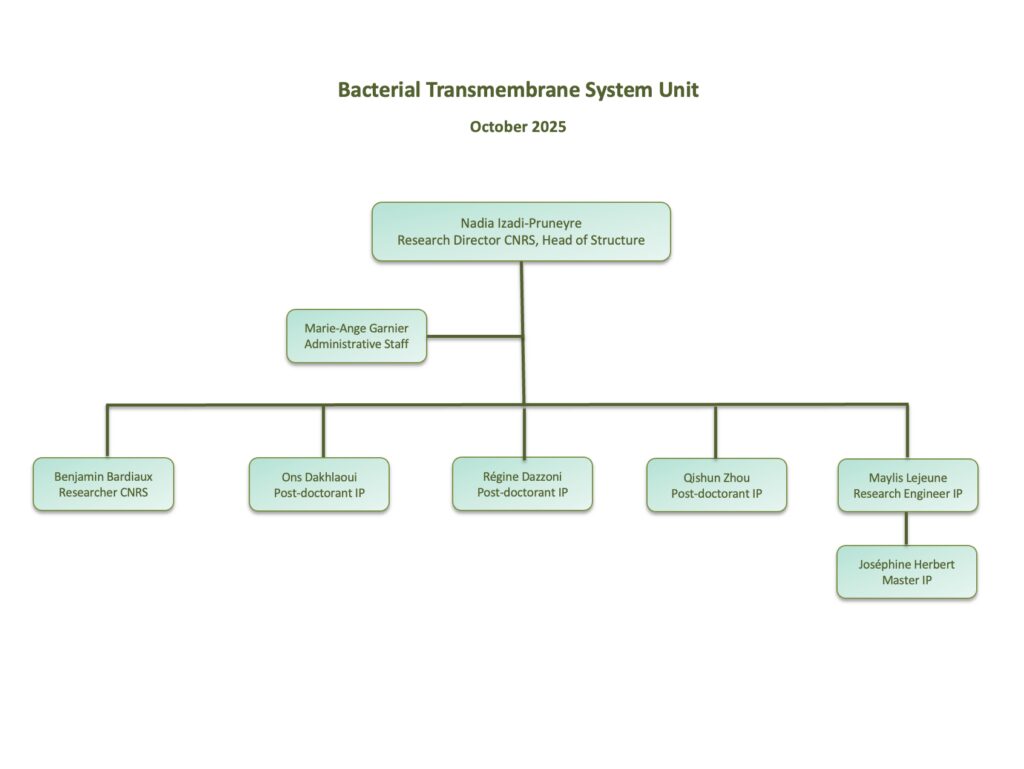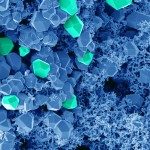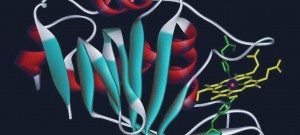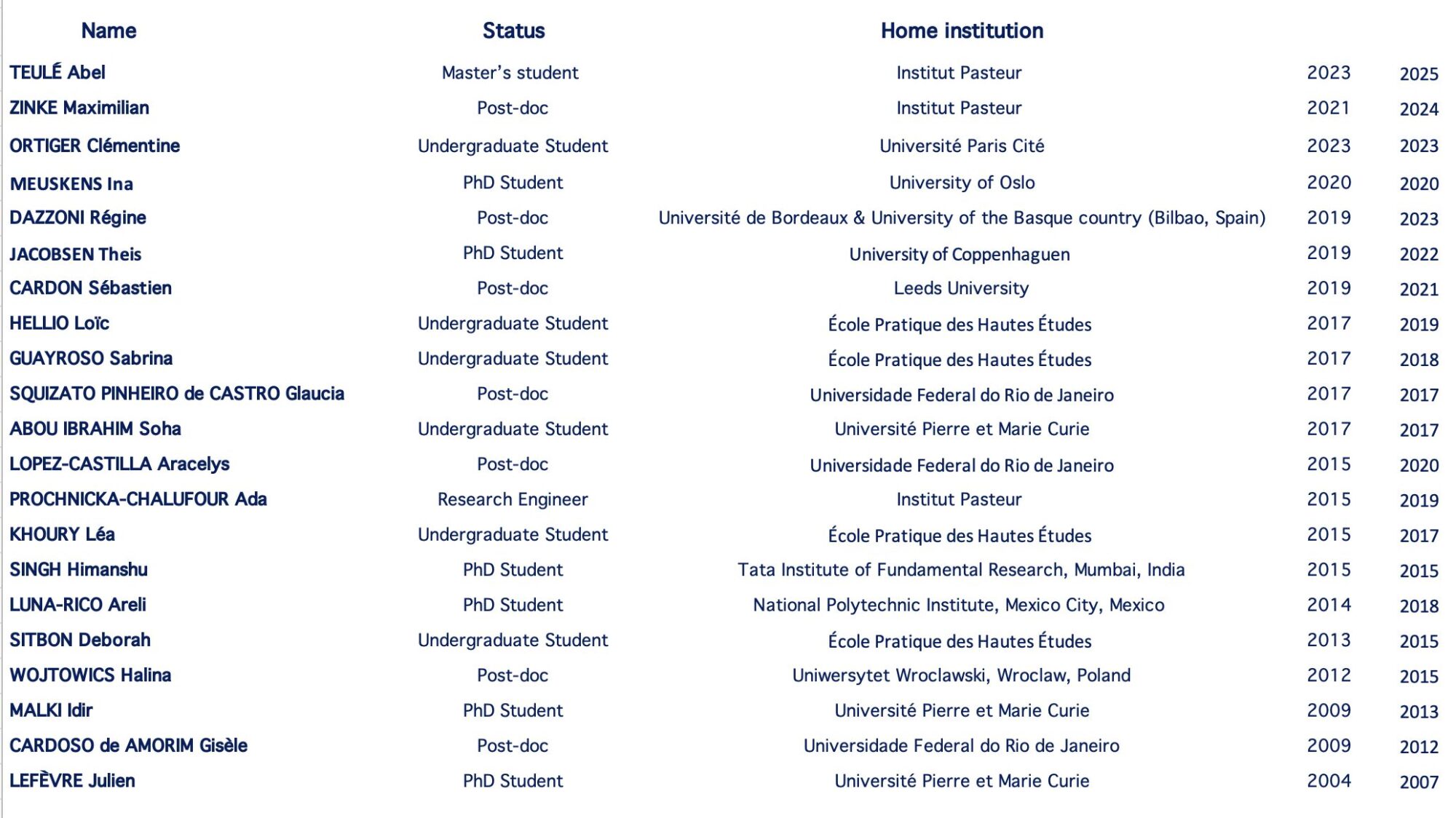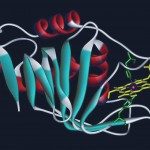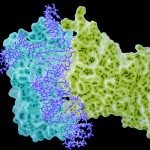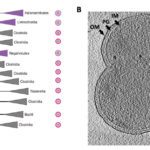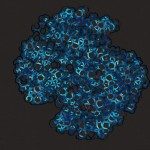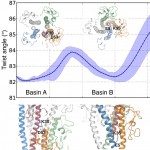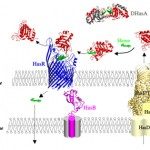Our research focuses on molecular nanomachines located on the surface of bacteria. These membrane machineries, composed of multiple proteins, ensure all exchanges with the host or environment, and are thus crucial for the adaptation, colonization and pathogenicity of bacteria. Due to their function and accessibility, these nanomachines represent relevant and promising target for the development of new antibacterial drugs.
However, deciphering their molecular mechanism is a challenge because of their dynamic and transmembrane nature. To overcome this challenge, we employ a multidisciplinary approach combining biophysics, biochemistry, microbiology and various structural biology techniques including experimental (NMR and cryoEM), computational and in cell methods. Our nanomachines of interest promote nutrient import, pili assembly, secretion or lipid trafficking.
